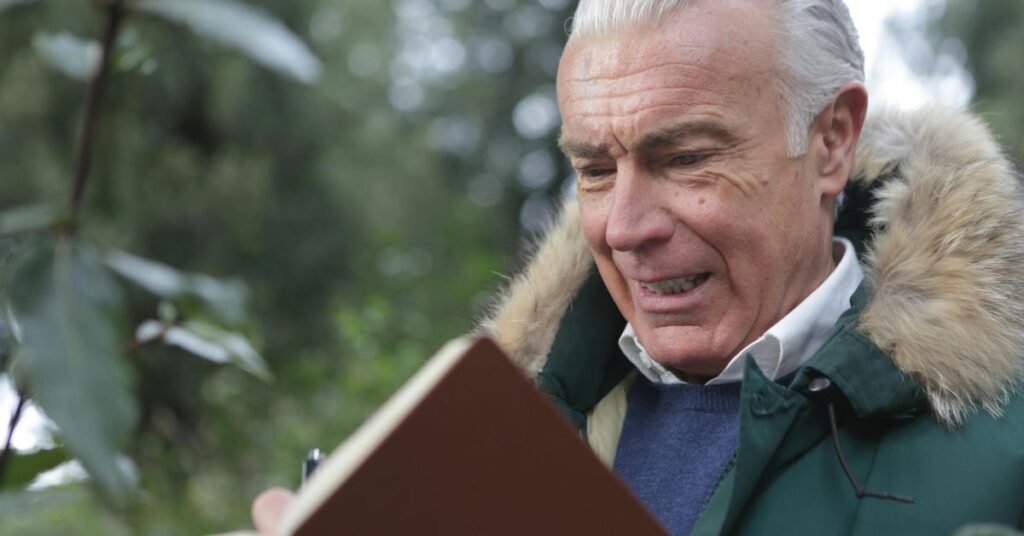An outdoor lifestyle is defined as spending lots of time out in nature. People who live this way enjoy nature and fresh air. They like things such as hiking, camping, and fishing. This style of life values being active and connected to the natural world.
Ever feel better after a walk in the park? There’s a reason for that. Spending time outdoors can improve both your mood and health. An outdoor lifestyle might be the most important to feeling happier and healthier.
Being outside helps our bodies make vitamin D from sunlight. Fresh air can enhance our breathing and energy levels. Nature sounds like birds, and water can lower stress. Moving more outdoors keeps our bodies fit and strong.
Let’s Discuss 12 benefits of the outdoor lifestyle for health and wellbeing.
Emotional Recharge
Nature has a unique power to refresh our minds. Being outside can help us feel calm and peaceful, and the sights and sounds of nature soothe our worries. We often return from outdoor trips feeling refreshed and renewed. This positive emotional boost can linger for days or even weeks.
Time in nature lets us step away from daily stress. We can forget our problems for a while outdoors. The beauty of landscapes can inspire positive feelings. Many people find it easier to relax in green spaces. Nature offers a chance to reset our emotional state.

Boosts Immune System
Our bodies fight illness better when we spend time outside. Fresh air has fewer germs than indoor air. Sunlight helps our skin make vitamin D, which aids our immune system. Being in nature can increase our white blood cell count, which helps protect us from diseases.
Outdoor activities often involve exercise, which is good for immunity. Plants release substances that may boost our defenses. Exposure to different environments can strengthen our immune response. Even short periods outdoors can have positive effects. Regular time in nature may lead to fewer colds and infections.
Reduce Stress
The outdoors is a natural stress-buster. Just looking at trees or water can lower stress hormones. Physical activity in nature helps release tension in our bodies. The quiet of natural settings gives our minds a break from noise. Many people find that outdoor hobbies like gardening are relaxing.
Nature provides a different pace from our busy lives. This change can help us put our worries in perspective. Deep breaths of fresh air can calm our nervous system. The repetitive sounds of waves or leaves can be soothing. Spending time outside typically leaves us feeling more balanced and less stressed.
- Embrace Nature’s Calm: Simply being in a herbal setting—whether near bushes, water, or open fields—can reduce stress hormones and immediately improve your temper.
- Relieve Tension Through Outdoor Activity: Physical sports like trekking, taking walks, or gardening in nature help release pressure from both body and mind.
- Find Solace in Natural Sounds: The soothing sounds of waves, rustling leaves, or birdsong offer a peaceful backdrop, calming your mind from daily noise and pressures.
- Refresh with Deep Breaths of Fresh Air: Fresh air relaxes the anxiety system, helping you feel extra balanced and grounded after spending time outdoors.

Improved Mood and Concentration
Being outdoors can make us happier and more focused. Natural light boosts our mood and energy levels. Green spaces have been shown to reduce symptoms of depression. Many people find it easier to concentrate on spending time in nature. Accomplishing outdoor activities can make us feel empowered and boost our self-esteem.
Nature walks can improve our ability to pay attention. The variety of sights and sounds outdoors can spark creativity. Children typically show better focus after playing outside. Even looking at nature through a window can lift our spirits. Regular outdoor time may lead to better overall mental health.
Better Sleep
Outdoor activities can help us sleep better at night. Natural light during the day regulates our sleep cycle. Physical exertion from outdoor pursuits tires our bodies. Fresh air can help clear our lungs and relax us. Many people find they fall asleep faster after time outside.

The quiet of nature can calm a busy mind before bed. Reduced screen time outdoors may improve sleep quality. Sunlight exposure helps set our internal clock for better sleep. Outdoor exercise releases chemicals that promote good sleep. Camping trips often reset sleep patterns for many people.
Regulated Circadian Rhythm
Outdoor exposure improves our body’s internal clock. Sunlight tells our brain when to be awake or sleepy. Morning light is beneficial for setting our daily rhythm. Outdoor time can also help with jet lag and shift work issues. A regular outdoor routine may improve overall sleep quality.
Natural light is much brighter than indoor lighting. This brightness helps keep our internal clock on track. Darkness at night is also essential for our rhythm. Camping trips can quickly reset an out-of-sync body clock. Even cloudy days provide enough light to help our rhythms.
- Enhance Sleep Quality
Regular outdoor exposure, especially in the morning, allows you to regulate your circadian rhythm, enhancing sleep quality and ensuring restful nights.
- Combat Jet Lag and Shift Work Effects
Spending time outside can drastically alleviate the symptoms of jet lag and the disruptions caused by irregular painting hours, helping you adjust extra quickly.
- Harness the Power of Natural Light
The brightness of natural sunlight is far more powerful than indoor lighting at preserving your inner clock aligned, making door time vital for retaining a healthy rhythm.
Healthy Diet
Outdoor activities frequently encourage healthier eating habits. Nature, with its abundance of fresh air and greenery, can inspire us to adopt a healthier diet. Growing a garden can increase vegetable consumption. Hiking and camping may lead to simpler, whole-food meals. Outdoor sports burn calories, allowing for more balanced diets. Many people snack less when engaged in outdoor hobbies.
Fresh air can increase our appetite for nutritious foods. Farmers’ markets encourage buying local, seasonal produce. Outdoor cooking regularly involves healthier grilling methods. Picnics can be a fun way to enjoy healthy, homemade food. Nature walks inspire trying new, natural foods.
Here’s a brief comparison table based on the article’s key benefits of an outdoor lifestyle. This table captures five main points:
| Benefit | Description |
|---|---|
| Emotional Recharge | Time outdoors refreshes the mind, reducing stress and promoting calmness. |
| Boosts Immune System | Fresh air and sunlight improve immunity by increasing vitamin D and white blood cells. |
| Reduces Stress | Natural settings lower stress hormones and offer relaxation. |
| Improves Mood & Concentration | Natural light and green spaces boost mood and mental clarity. |
| Enhances Sleep Quality | Exposure to natural light helps regulate sleep cycles and promotes restful sleep. |
Disconnection from Technology
Time outdoors often means less time with screens. This break from technology can reduce eye strain. Nature encourages live interactions instead of digital ones. Many outdoor areas have limited cell service, forcing a tech break. This disconnection can lead to more mindful living.
Outdoor activities provide alternatives to screen-based entertainment. Children playing outside use their imagination more. Adults may rediscover non-digital hobbies in nature. The quiet of the outdoors highlights the noise of constant notifications. Regular outdoor time allows us to unplug from the digital world and develop healthier tech habits. It reduces constant digital noise and promotes more mindful living.

Lower Blood Pressure
Spending time in nature can help lower high blood pressure. The calming effect of greenery may reduce blood pressure. Outdoor exercise is perfect for heart health. Deep breathing in fresh air can help relax blood vessels. Even short nature breaks can have a positive effect.
Trees release substances that may help lower blood pressure. The quiet of nature can reduce stress-related blood pressure spikes. Sunlight helps our bodies make nitric oxide, which lowers blood pressure. Gardening and other outdoor hobbies provide gentle, helpful exercise. Regular outdoor time may reduce the need for blood pressure medication.
Increased Flexibility
Outdoor activities often require more varied movements than indoor ones. Hiking on uneven ground challenges our balance and flexibility. They reach for branches or rocks while climbing, which improves stretch. Swimming in natural waters engages muscles in fluid motions. Even simple activities like gardening involve bending and stretching.
Yoga or stretching outdoors can feel more natural and free. Cold weather makes us more flexible as we move, while warm weather promotes looser, more relaxed movements. Outdoor games and sports involve spontaneous, varied motions. Regular outdoor activity can lead to better overall body flexibility.
Improved Cognitive Abilities
Time in nature can sharpen our thinking skills. Problem-solving in outdoor settings boosts creative thinking. Nature walks have been shown to improve short-term memory. The variety of outdoor stimuli can enhance our ability to focus. Learning new outdoor skills challenges our brains in positive ways.
Natural settings provide mental breaks that refresh our minds. Observing nature can improve our attention to detail. Outdoor experiences often involve learning, which is good for our brains. The quiet of nature allows for deeper, more focused thinking. Regular time outdoors may slow age-related cognitive decline.
Increased Vitamin D Levels
Sunlight on our skin helps produce vitamin D, which is essential for strong bones and teeth. It also plays a key role in fighting infections. Many people don’t get enough vitamin D from food alone. Outdoor time is an easy way to boost vitamin D naturally.
Even cloudy days provide some vitamin D-producing sunlight. Short periods of sun exposure can be enough for many people. Vitamin D helps our bodies absorb calcium better. This vitamin may also help prevent some types of cancer. Regular outdoor time can help maintain healthy vitamin D levels year-round.
Final Thoughts
An outdoor lifestyle offers many benefits for our health and wellbeing. From boosting our mood to improving our sleep, nature has a powerful effect on us. Regular time outside can make us healthier in body and mind. Even small amounts of outdoor time can make a big difference. Connecting with nature is good for us in many ways.
Making outdoor activities part of our daily life is a simple way to feel better. We don’t need fancy equipment or much time to enjoy these benefits. A short walk, some gardening, or just sitting outside can help. Try to spend a little time outdoors each day if you can. Your body and mind will thank you for embracing an outdoor lifestyle.
FAQs
Why is sunlight important for our health outdoors?
Sunlight helps the body produce vitamin D, which strengthens bones and supports immunity.
How does nature contribute to better sleep?
Exposure to natural light and fresh air can help regulate circadian rhythms, leading to improved sleep.
Can spending time outside lower blood pressure?
Yes, outdoor activities and natural surroundings can reduce blood pressure by lowering stress.
What effect does an outdoor lifestyle have on the immune system?
Regular time in nature boosts immunity by increasing vitamin D and reducing indoor pathogens.

